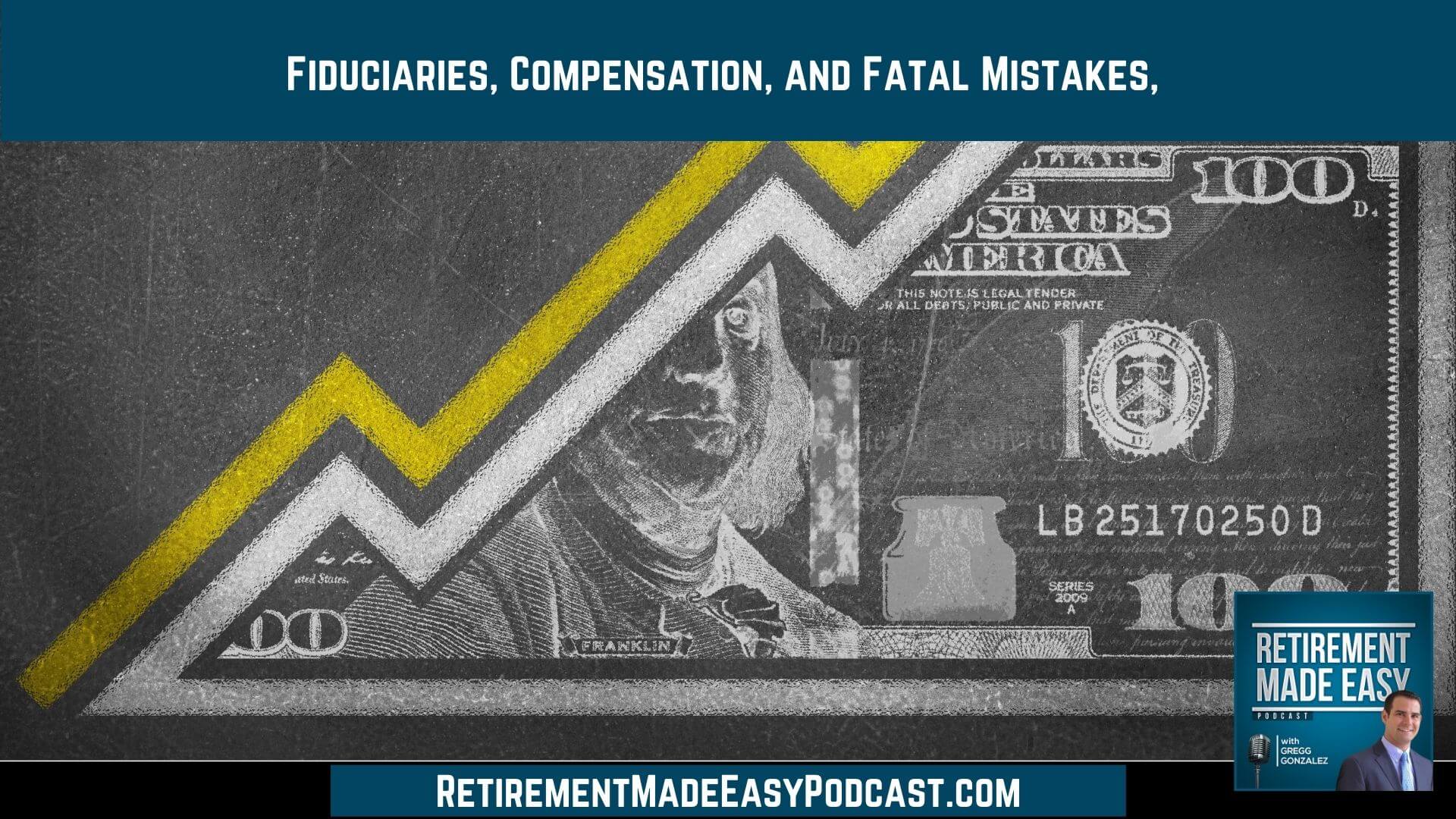
What is a fiduciary? How are financial advisors compensated? What is a fatal mistake I see people make with investing? In this episode of retirement made easy, I answer these listener questions so that you can be well-educated about your advisor—and your investments.
You will want to hear this episode if you are interested in…
- [1:30] What’s covered in this episode
- [4:45] The role of a fiduciary
- [9:41] The 3 ways financial advisors get compensated
- [18:30] The fatal mistake people make
The role of a fiduciary
What is a fiduciary? Why would you need one? Do I recommend working with a fiduciary? A fiduciary is someone that acts on the behalf of another person/people and puts their best interests ahead of his or her own. A fiduciary is both ethically AND legally responsible for their actions. Because of this, a fiduciary can be sued if they’re found to be negligent in their duties. The legal aspect holds them accountable.
A simple example of a fiduciary is the legal guardian of a child. They make financial decisions on the child’s behalf and they’re responsible for their well-being. Fiduciaries can be financial advisors as well. I wouldn’t work with a financial advisor that wasn’t a fiduciary. I am a fiduciary and make sure prospective clients know that I have their best interests in mind. If I won’t put my money in something, I wouldn’t put yours in it either.
Three ways financial advisors get compensated
There are three ways financial advisors can charge for their services:
- A flat hourly fee/amount: This is similar to how an attorney charges for their time. On some occasions, I will charge $200 an hour for my services and you’d pay me after the service is completed. Not all advisors can charge hourly or fixed fees for planning services. It depends on the certifications and licenses that they have.
- Commission-based compensation: The advisor would earn a commission based on the sale of some sort of product (insurance, investment, etc.). If you purchase an investment product and put $100,000 in, a certain percentage comes right off of the top. It’s similar to a real estate agent’s commission. Sometimes the commission is baked into the product. I think all commissions should be disclosed so they know how their financial advisor is getting paid. But there’s a conflict of interest when it comes to commissions. Why? An advisor may tell you to buy or sell more frequently than you actually need to so they get the commission on the sale. NOTE: I only receive commissions if we sell term life insurance.
- An advisory fee: This is an annual cost that comes out of your account. It may be around 1% per year, depending on how much money is in your accounts. The best part about this is that you know what you will pay upfront. You can see the advisory fee coming out of your account on your statements. I like this because it’s transparent. There are no hidden fees or surprises. It’s becoming more and more popular.
We meet with clients annually or semi-annually to show them their progress, update their retirement plan, etc. The clients that I get who were under a compensation-based agreement with their advisor never spoke with them. There was very little service after the sale (in my personal experience).
Keep portion control in mind
In 2008, someone called me who said they were the brother of a client. They wanted to cash out their 401k and put it all into GM stock (because it was at an all-time low). They were certain that GM would be bailed out. But I don’t believe in all-or-nothing thinking. I told them if they were dead-set on doing it to only use a small portion of their 401k. He didn’t follow my advice.
Remember what happened? GM went to zero. They filed for bankruptcy. This guy put his life savings into GM stock and he lost everything. Never ever dump your entire nest egg into one thing. You need to abandon the all-or-nothing way of thinking. You can always sell a portion of something—it doesn’t have to be it all. Rethink the “go big or go home” mentality. Exercise portion control into your investment strategy.
Connect With Gregg Gonzalez
- Email at: Gregg@RetireSTL.com
- Podcast: https://RetirementMadeEasyPodcast.com
- Website: https://StLouisFinancialAdvisor.com
- Follow Gregg on LinkedIn
- Follow Gregg on Facebook
- Follow Gregg on YouTube



